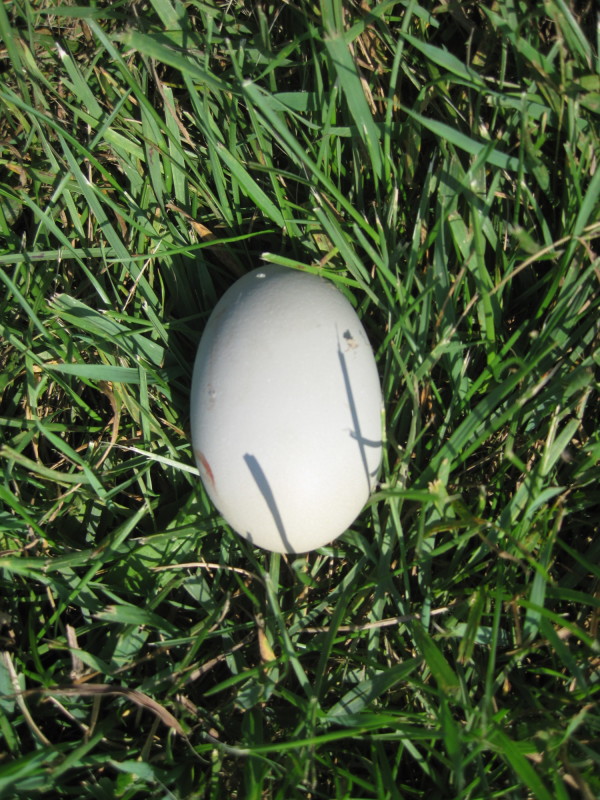
Eggs
 Market Look-For’s
Market Look-For’s
- Different colored shells have no bearing on the quality of the egg
- If you want super golden yolks ask about the age of the hens and their diet. Young hens eating more greens will have darker yolks.
Storage
- Hens want to lay a clutch of eggs before sitting on them—more bang for their buck; why hatch 1 chick when you can get 10! Because of this, an egg is designed to be stable at room temperature. When it is warmed (ideally by a broody hen’s bottom) the yolk begins to activate and develop a chick. For this reason, once an egg is cooled. It must be kept cool. If eggs are never cooled, they will hold at room temperature for weeks on end. If you buy cold eggs, keep them cold. If you have eggs that have never been cooled they can be kept on the counter with no fear of spoilage.
- Shells are semi-permeable, so the water in the white will evaporate over time, creating more space between the egg and the shell. This is why older eggs peel more easily.
- The white will also slacken with age. Crack an egg on to a plate and see how tall the white directly around the yolk is to determine the age of the whole dozen.
Notes:
- All of this information is also true for quail, duck, goose and ostrich eggs.
- Duck eggs have a larger yolk to white proportion than chicken eggs and so are a good idea when utilizing the yolks primarily—flan, ice cream, mayonnaise etc.
- Standard Egg Sizes
- Jumbo—Greater than 2.5 oz
- Extra Large—Greater than 2.25 oz
- Large—Greater than 2 oz
- Medium—Greater than 1.75 oz
- Small—Greater than 1.5 oz
Site by Bryan Morrison
 Market Look-For’s
Market Look-For’s